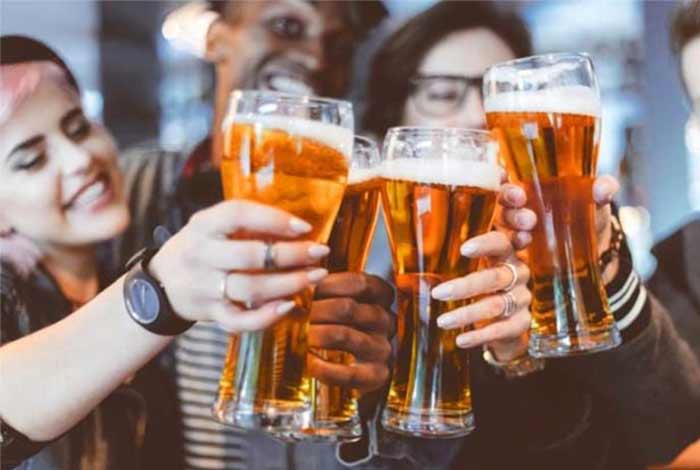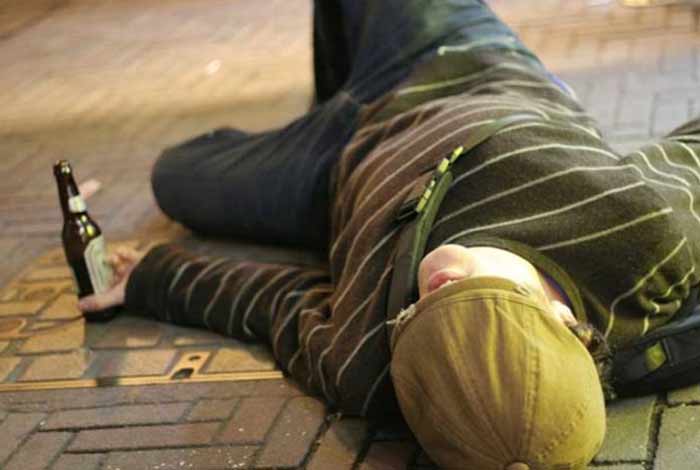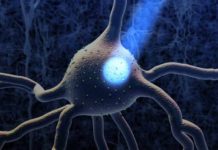
Know What Happens to Your Brain When You Drink Too Much

A cocktail on vacation, a glass of red wine with dinner and a cold beer or two after work, is so normal and quite deeply ingrained in the American culture. For many of us, alcohol is a necessary part of life. Several studies have revealed that alcohol when consumed in moderation, provides various health benefits. Probably this is the reason we turn to alcohol during stressful situations and even celebrations.
The researches have however also proved that when a person consumes too much alcohol, it has damaging effects on the brain and the body. These damages could be both temporary and permanent. Some of these effects include diminished memory and slurred speech. While these side-effects are quite clear, experts believe the associated cellular changes are yet not clear.
Well, if you want to know what actually happens to your brain when you over-do it, you need to read the article. We talked to various experts regarding this and all of them agreed that an occasional drink or two might not hurt but you need to know the long term and short-term effects of excessive drinking, before you go on with that fourth glass of whiskey.
Short-Term Effects of Excessive Alcohol Consumption
Maria Pagano, associate professor and research at Case Western Reserve University, Ohio reveals that consuming alcohol alters the levels of neurotransmitter in our brain. Neurotransmitters are the chemicals that play an important role in transmitting signals throughout the body and also control emotions, behaviors and physical activities.
Pagano explains that alcohol consumption slows down the neurotransmitter known as gamma-aminobutyric acid (GABA) and this eventually leads slurred speech, sluggish movement, and slower reaction in someone who is intoxicated. She also explains that excessive alcohol consumption also speeds up another neurotransmitter known as glutamate. This in turn leads to feeling fuzzy and warm when you drink.
Excessive alcohol consumption could also hamper your judgment skills, thereby making you indulge in risky activities like drunk driving, unprotected sex and so on. While if you are already have an underlying mental disorder such as bipolar disorder or depression, these conditions might exacerbate on excessive drinking.
Binge drinking also negatively impacts two major brain parts: cerebral cortex (takes in new information and processes it) and the cerebellum (regulates balance of the body). Slurred speech, difficulty in paying attention and stagger while walking can all be because of slowing down of these brain parts. Pagano asserts that because the sensory uptake has slowed down due to excessive drinking, you will not take in new information.
Brain’s another important region hippocampus, which supports creating new memories is affected by alcohol, which leads to short-term memory lapses and blackouts while drinking. Extreme cases of heavy drinking might even lead to unconsciousness which might probably be due to cell death. Pagano says that frequent episodes of drinking too much can lead to long-term health consequences, impacting both memory and learning.
Most of these side-effects occur because of a sudden rise of blood alcohol content. You can easily prevent these by taking small breaks between drinking. Also, remember to eat before you start drinking, reminds Pagano.
Long-Term Effects of Excessive Alcohol Consumption

A 2008 study [1] reveals that prolonged heavy drinking can actually shrink the brain volume. People who drank over 14 glasses over a period of 20 years had 1.6% smaller brains than non-drinkers. This association was true for women.
Another study conducted in 2014, discovered that prolonged heavy drinking could speed up memory loss in men in older age. Men who drank more than two and a half glass of alcohol daily experienced early signs of cognitive decline up to 6 years than those who were non-drinkers, had quit drinking, or were light to moderate drinkers. This study was published in the journal Neurology [2].
Pagano stresses that with excessive drinking, you stop feeling the same high you once used to get with similar amount of alcohol. In other words, you build alcohol tolerance and you have to consume more alcohol to feel the same effects. This makes a person consume more and more alcohol. Alcohol considerably damages the cellular networks and kills cells. It is exactly not clear how well or to which extent they can grow back.
Alcohol consumption also hinders the absorption of thiamine, that might lead to a type of dementia, known as Wernicke-Korsakoff syndrome. Another long-term health complication of alcohol consumption is liver cirrhosis.
A recent study [3] reveals that people who consume 10 or more drinks per week had shorter life expectancy by one to two years, as compared to those who had less than 5 drinks each week. This number increased to four to five years for people who consumed 18 or more drink per week. The researchers also found that alcohol consumption might lead to various cardiovascular conditions including stroke , which is potentially life-threatening.
Know How Much Alcohol Is Too Much
Pagano explains that drinking 7 times a week for women and not more than 14 times a week for men, seems to be perfect from a health perspective. While if you have a hard time saying no to another glass of alcohol, you must re-examine your relationship with alcohol. You might be having genetic predisposition to have alcohol addiction.
Researchers warn that consuming alcohol to become an extrovert if you are otherwise introvert is also bad. You might never learn how to cope up with real-life situations without drinking alcohol.
If you have decided to stop drinking, you are on a right track. It might seem impossible initially, but it is a decision that you will never regret. If you are not able to quit drinking on your own, you can consider psychotherapy or a rehab. It is better to live each moment, rather than to see it with a haze you get from alcohol.





